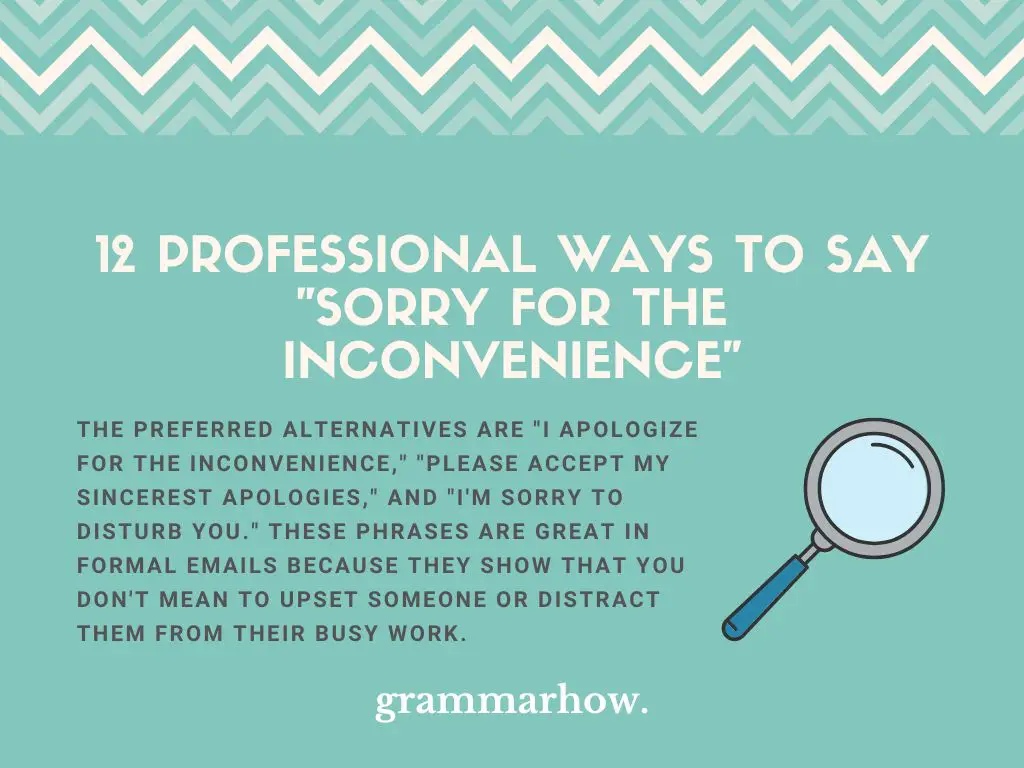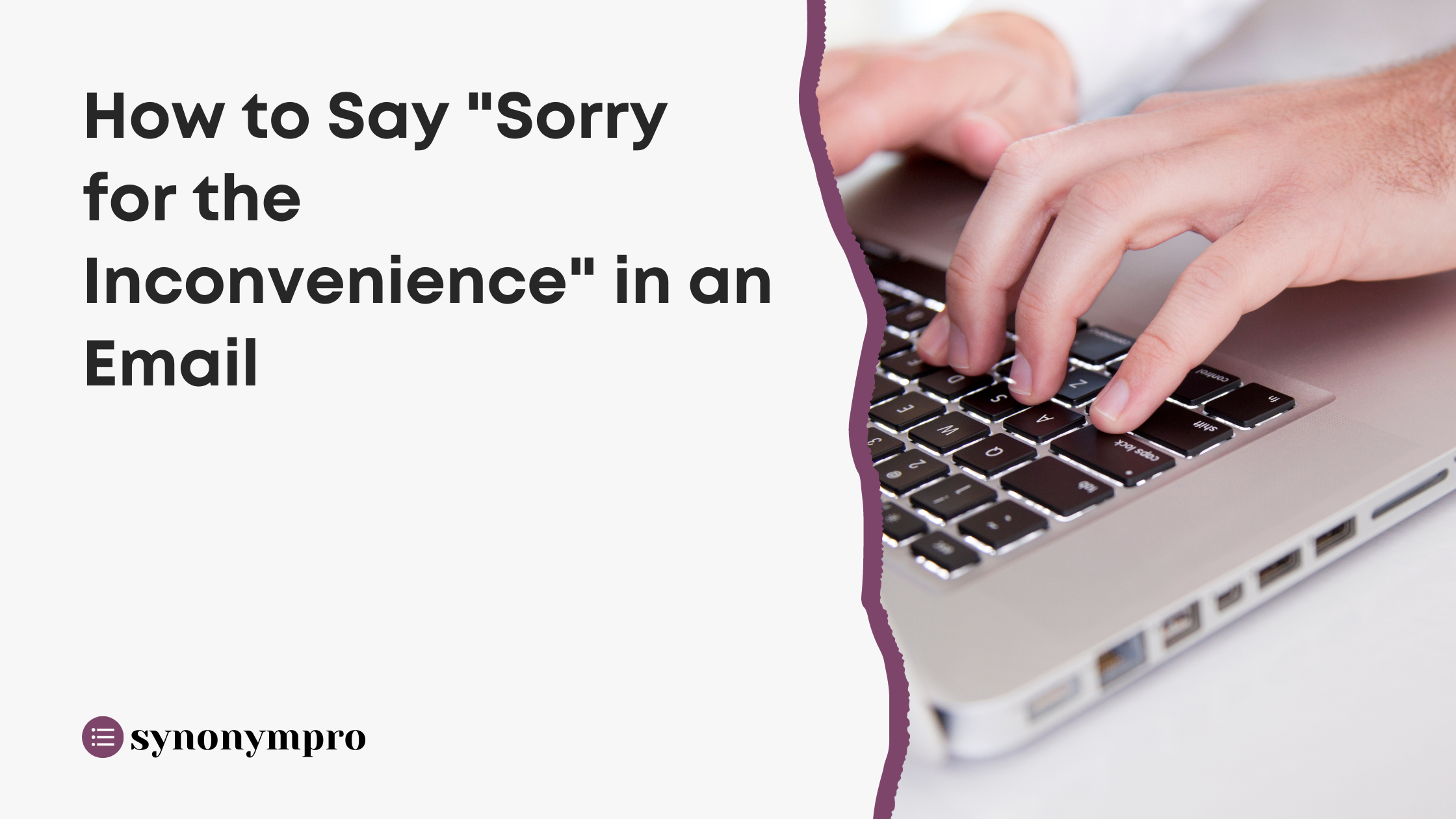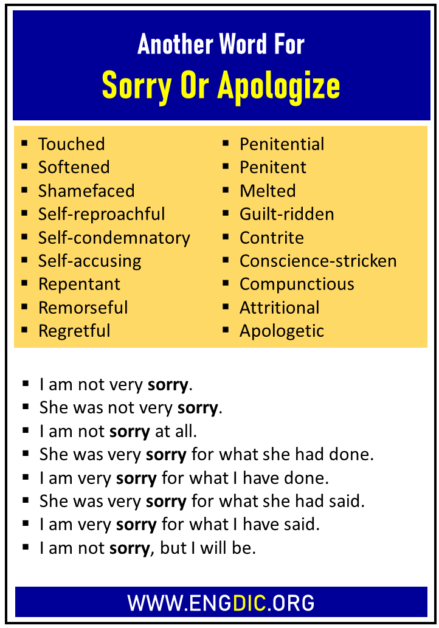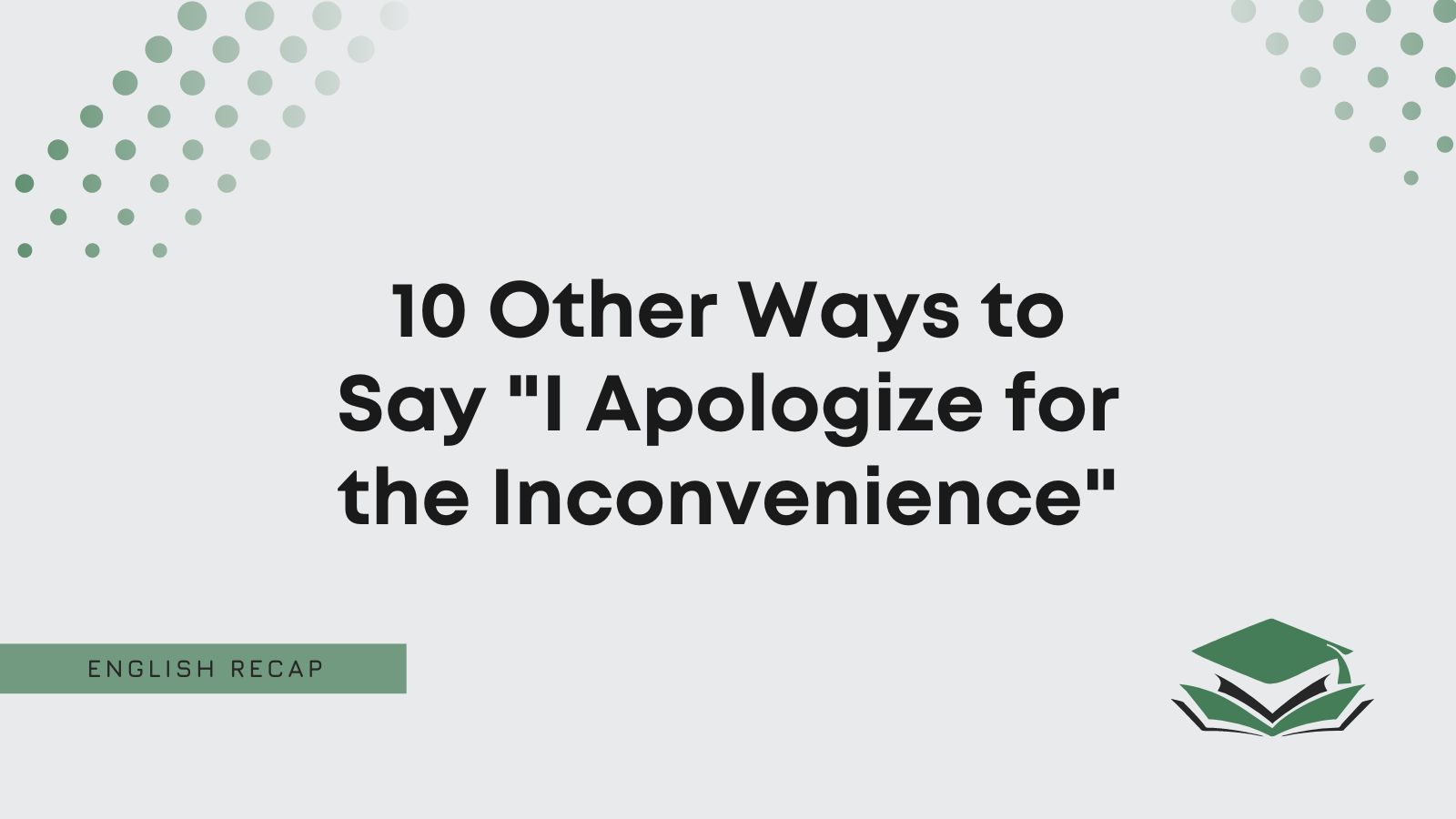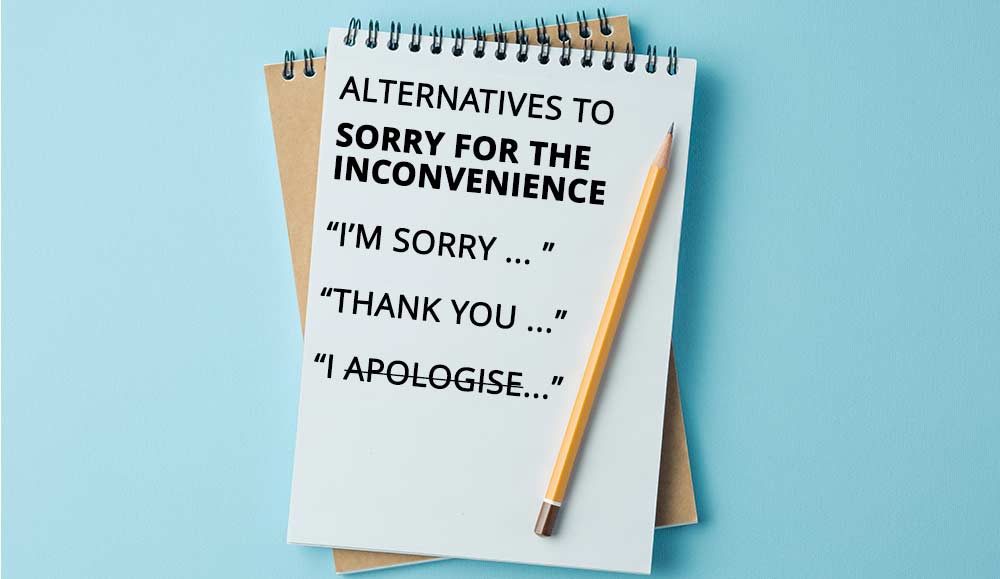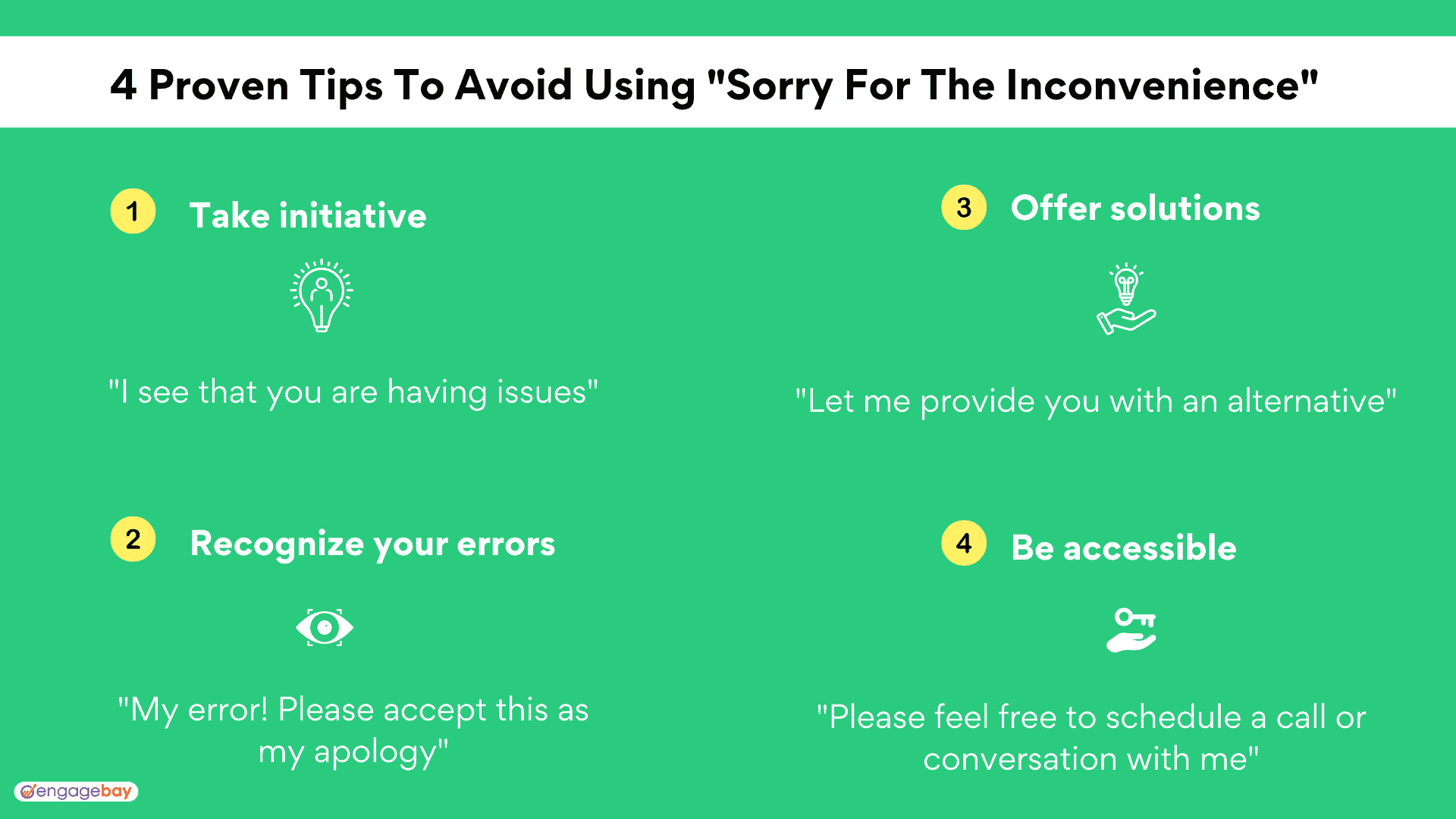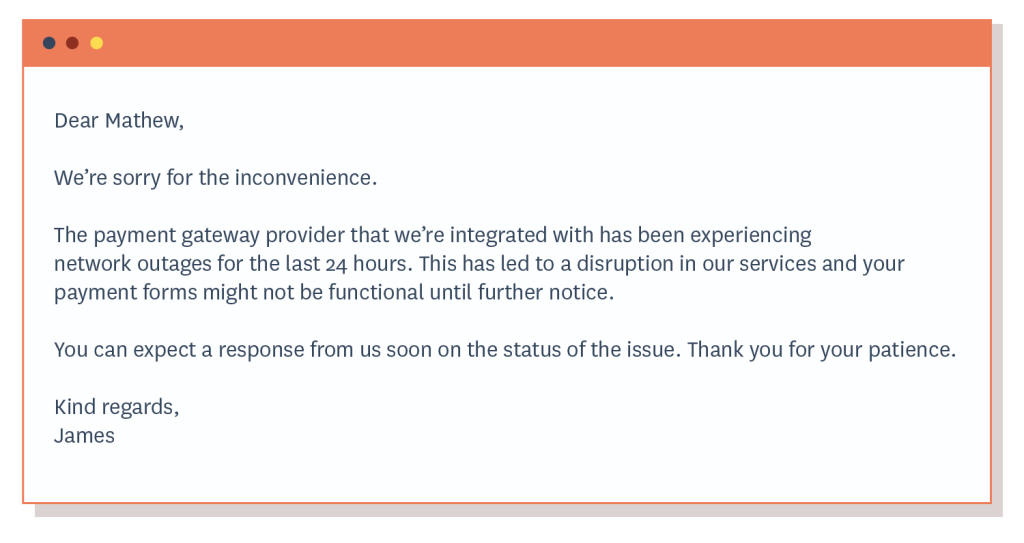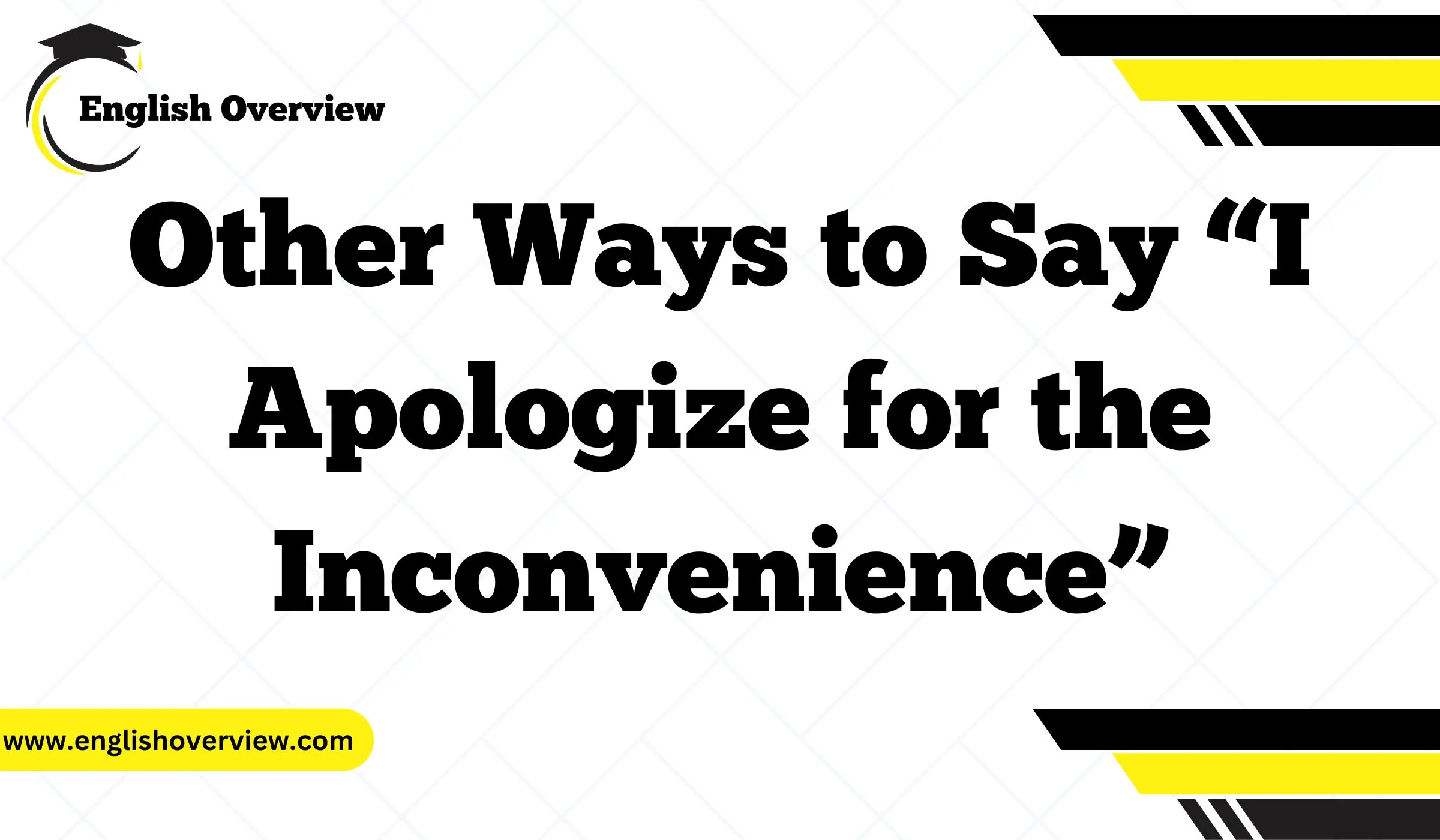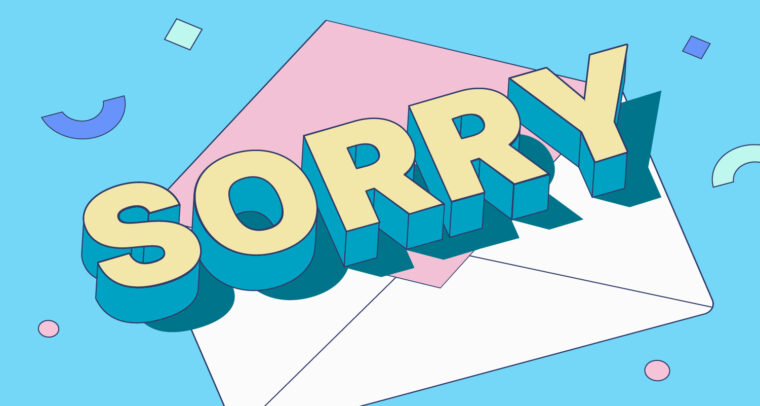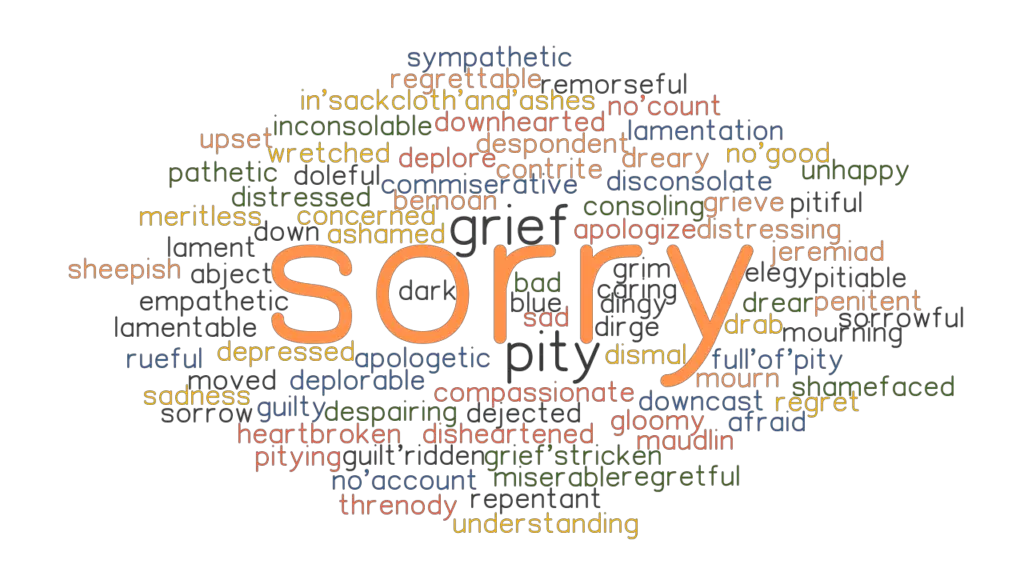Sorry For The Inconvenience Synonym
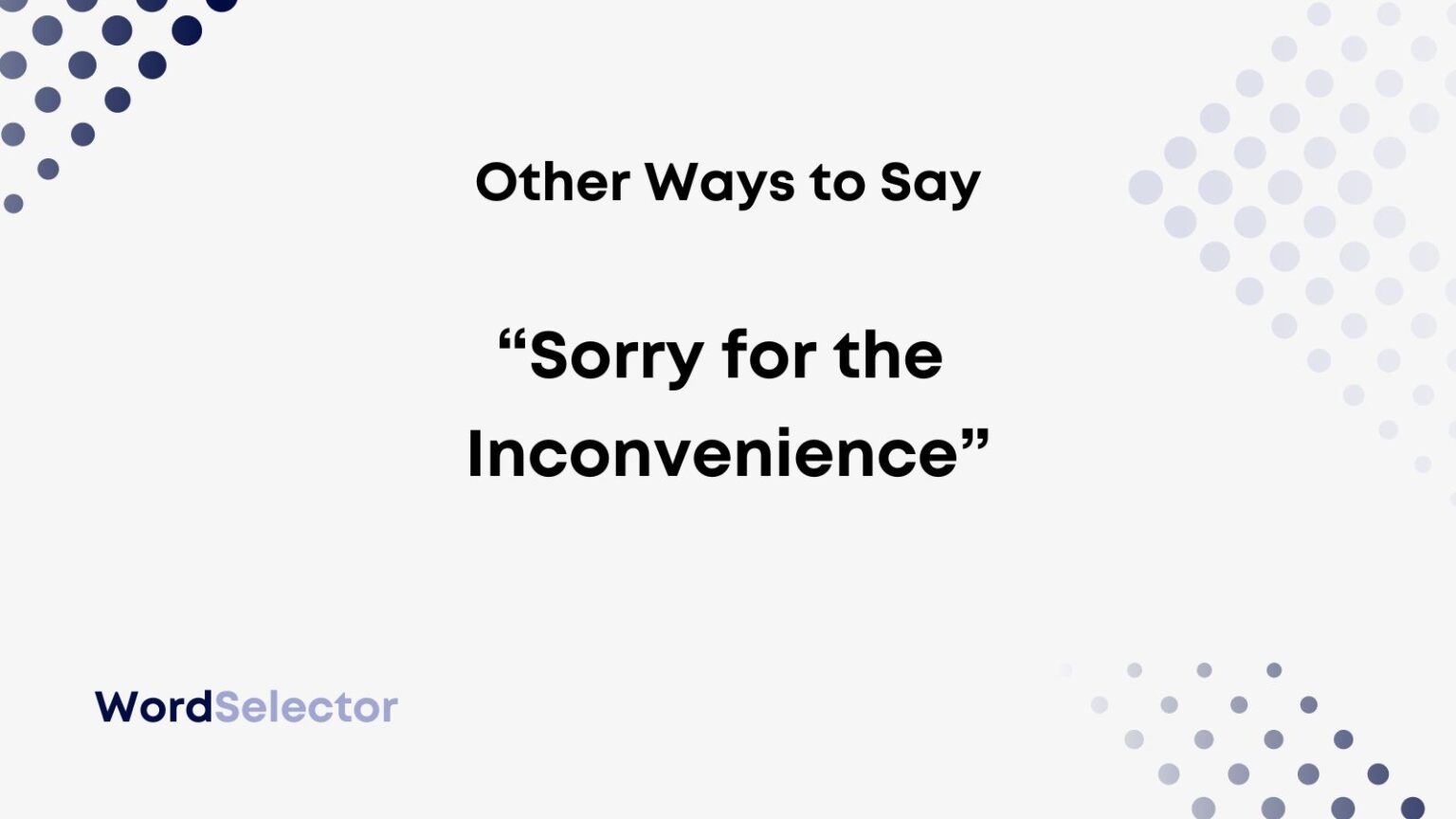
The phrase "Sorry for the inconvenience" has become a ubiquitous, almost automatic, utterance in modern life. From delayed trains to website outages, it's the go-to apology. However, its overuse has arguably diluted its sincerity, prompting businesses and organizations to seek more impactful and empathetic alternatives.
This article delves into the growing movement to replace "Sorry for the inconvenience" with more meaningful expressions of remorse and understanding. It explores the reasons behind the phrase's perceived inadequacy and examines the strategies companies are employing to offer more authentic apologies and rebuild customer trust. Expert opinions, data on customer satisfaction, and real-world examples will illustrate the evolving landscape of corporate communication and customer service.
The Problem with "Sorry for the Inconvenience"
The main criticism leveled against "Sorry for the inconvenience" is its perceived lack of sincerity. It often sounds generic and detached. This impersonal tone can further frustrate customers already dealing with a problem.
Consumer behavior studies, like one published in the Journal of Consumer Research, suggest that customers are more likely to forgive mistakes when companies demonstrate genuine empathy. A simple, rote apology often fails to convey this.
Exploring Alternative Phrases and Strategies
Several alternatives are gaining traction as more effective ways to express regret. These alternatives aim to demonstrate understanding and a commitment to resolving the issue.
Phrases like "We understand this is frustrating," or "We appreciate your patience" acknowledge the customer's emotions. Further, offering specific solutions or explaining the steps being taken to rectify the situation can significantly improve customer perception.
The Power of Specificity
Specificity in an apology demonstrates that the company understands the precise nature of the problem. Instead of a general apology, acknowledging the specific impact on the customer can be more effective.
For example, instead of "Sorry for the inconvenience caused by the website outage," a company might say, "We understand the website outage prevented you from accessing your account and making payments, and we sincerely apologize for this."
Empathy and Ownership
Expressing empathy and taking ownership of the mistake are crucial elements of an effective apology. This involves acknowledging the customer's feelings and accepting responsibility for the issue.
Phrases like "We're truly sorry for the trouble this has caused" or "We take full responsibility for this error" can convey genuine remorse. This approach can help to rebuild trust and demonstrate a commitment to customer satisfaction.
Real-World Examples and Data
Companies like Zappos, known for their exceptional customer service, have long prioritized personalized and empathetic communication. Their representatives are empowered to offer solutions and apologies that go beyond standard scripts.
Data from customer satisfaction surveys consistently show a correlation between personalized apologies and increased customer loyalty. Companies that invest in training their employees to handle complaints with empathy and understanding often see significant improvements in their customer satisfaction scores.
"The key is to treat each customer interaction as an opportunity to build a relationship, not just resolve a problem," explains Dr. Anya Sharma, a leading expert in customer service psychology. "A genuine apology, delivered with empathy, can turn a negative experience into a positive one."
Looking Ahead: The Future of Apologies
The trend towards more authentic and empathetic apologies is likely to continue. As customers become increasingly demanding, companies will need to find new and innovative ways to express remorse and rebuild trust.
Investing in employee training, developing personalized communication strategies, and embracing a culture of accountability will be essential for success. Ultimately, the goal is to move beyond generic phrases and create genuine connections with customers, even in the face of adversity.
The evolution of the corporate apology reflects a broader shift towards prioritizing customer experience and building long-term relationships. The days of the dismissive "Sorry for the inconvenience" are numbered, replaced by a more nuanced and empathetic approach to communication.


